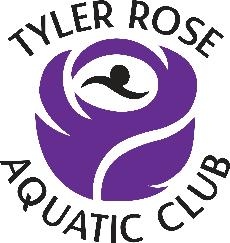Electronic Communication Policy
PURPOSE
TRAC recognizes the prevalence of electronic communication and social media in today’s world. Many of our swimmers use these means as their primary method of communication. While the Club acknowledges the value of these methods of communication, the Club also realizes that there are associated risks that must be considered when adults use these methods to communicate with minors.
GENERAL CONTENT
All communications between a coach or other adult and an athlete must be professional in nature and for the purpose of communicating information about team activities. The content and intent of all electronic communications must adhere to the USA Swimming Code of Conduct regarding Athlete Protection. For example, as with any communication with an athlete, electronic communication should not contain or relate to any of the following:
-
drugs or alcohol use; sexually oriented conversation; sexually explicit language; sexual activity the adult’s personal life , social activities, relationship or family issues, or personal problems; and inappropriate or sexually explicit pictures
Note: Any communication concerning an athlete's personal life, social activities, relationship or family issues or personal problems must be transparent, accessible and professional. Whether one is an athlete, coach, or parent, the guiding principle to always use in communication is to ask: “Is this communication something that someone else would find appropriate or acceptable in a face-to-face meeting?” or “Is this something you would be comfortable saying out loud to the intended recipient of your communication in front of the intended recipient’s parents, the coaching staff, the board, or other athletes?” With respect to electronic communications, a simple test that can be used in most cases is whether the electronic communication with swimmers is Transparent, Accessible and Professional.
-
Transparent: All electronic communication between coaches and athletes should be transparent. Your communication should not only be clear and direct, but also free of hidden meanings, innuendo and expectations.
-
Accessible: All electronic communication between coaches and athletes should be considered a matter of record and part of the Club’s records. Whenever possible, include another coach or parent in the communication so that there is no question regarding accessibility. When communicating one on one with a minor athlete a parent must be copied on the communication.
Q: Is a telephone call considered to be an electronic communication?
A: A telephone call is similar to a one-on-one interaction. Therefore, a telephone call between an Applicable Adult and a minor athlete must be observable and interruptible by another adult. The duration of a telephone call made during an emergency circumstance must be consistent with the type of emergency.
Q: Can a team change the hours during which electronic communications can be sent to a time period other than 8:00 a.m. to 8:00 p.m.?
A: No.
Q: Can an LSC send communications to a committee including an athlete representative outside of 8:00 a.m. to 8:00 p.m.?
A: No. LSC staff are Applicable Adults with authority over minor athletes. Electronic communications sent to minor athletes must only be sent between the hours of 8:00 a.m. and 8:00 p.m.
Q: Can an LSC or USA Swimming committee with minor athlete representatives conduct a telephone or video conference meeting after 8:00p.m.?
A: Yes. If a committee is unable to hold their meeting before 8:00 p.m., then the committee can conduct the meeting after 8:00 p.m. Electronic distribution of meeting materials should not be sent between 8:00 p.m. and 8:00 a.m.
Q: If an athlete member turns 18 years old and becomes an Applicable Adult, can that athlete member still communicate with minor athlete friends and teammates through social media and electronic communication?
A: Yes. If that adult athlete does not have “authority over” (e.g., a power imbalance does not exist) the minor athletes, then this provision of the policy does not apply.
Page /



